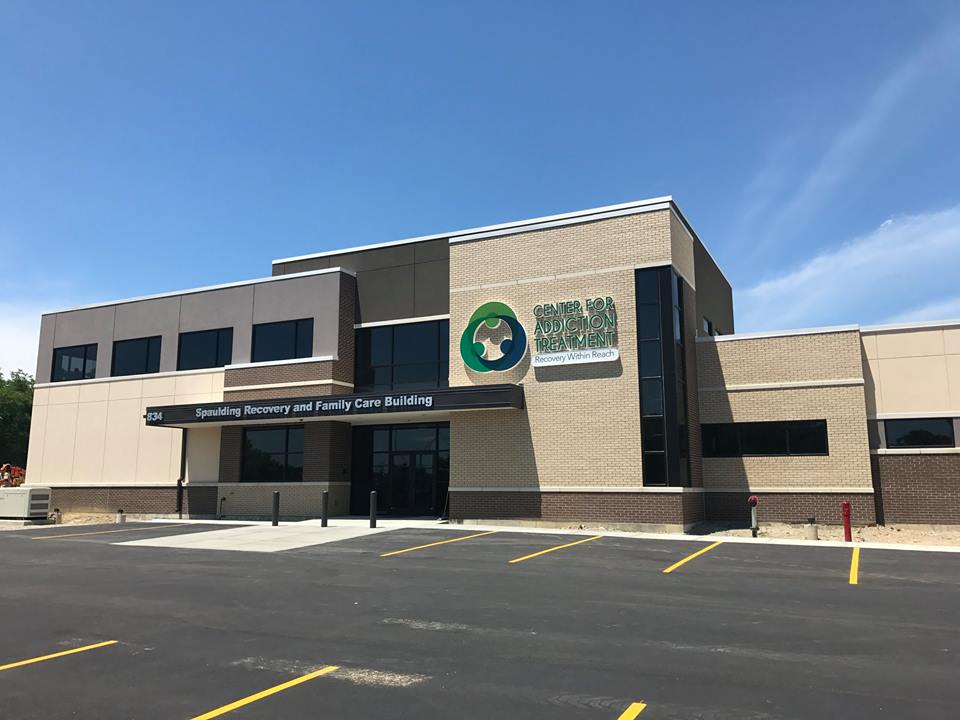Alternative Recovery at a Remarkable Addiction Treatment Center
Alternative Recovery at a Remarkable Addiction Treatment Center
Blog Article
Navigating the Journey of Detoxification in the Comprehensive Addiction Treatment Program
The process of cleansing holds a considerable function in breaking the physical dependence on materials and preparing the individual for the subsequent phases of treatment. As people grapple with the challenges of withdrawal symptoms and the unpredictabilities that lie in advance, having a structured strategy and a robust assistance system in location becomes critical.
Value of Detoxing in Recuperation

Cleansing sets the foundation for the remainder of the addiction treatment program by preparing the individual for more therapy and therapy. By cleansing the body of substances that have actually been clouding judgment and affecting actions, detox allows clients to approach their recovery with a clearer mind and more powerful emphasis.
Moreover, cleansing aids in managing the possibly extreme withdrawal symptoms that might develop when medication or alcohol usage is stopped. Physician very closely keep an eye on people throughout detox to guarantee their security and supply necessary support. Via this process, individuals can start their journey towards sobriety with a supported physical and mental state, boosting the probability of a successful recuperation.
Comprehending the Detoxification Refine
Cleansing, a fundamental part of dependency therapy programs, involves an organized process aimed at safely removing hazardous substances from the body to facilitate an effective recovery journey. The detoxification procedure generally begins with an assessment to evaluate the person's compound usage history, physical wellness, and mental wellness. This evaluation helps medical care professionals identify the most ideal detox plan tailored to the individual's needs.
During detox, the body experiences withdrawal as it readjusts to the absence of the compound. Withdrawal signs and symptoms differ relying on the kind of substance made use of, the duration of use, and individual elements. Medical guidance throughout detox is essential to manage withdrawal signs and make certain the person's security and comfort.

Managing Withdrawal Symptoms

Medicines may be made use of to alleviate particular withdrawal symptoms and decrease discomfort. Drugs like methadone or buprenorphine can aid manage opioid withdrawal signs, while benzodiazepines may be used for alcohol withdrawal. It is important for doctor to very carefully check the person's response to these medications to ensure their security and effectiveness.
In addition to find out pharmacological treatments, supportive treatments such as therapy, peer support groups, and holistic practices like mindfulness reflection or yoga exercise can aid people deal with the mental and psychological difficulties of withdrawal. By dealing with withdrawal signs comprehensively, medical care companies can improve the detoxification experience and support individuals on their trip to recovery.

Support Equipments During Detox
Support group play an essential role in giving psychological and social help to individuals going through cleansing in dependency treatment programs. Throughout the detoxification process, people often experience a variety of mental and physical withdrawal signs, making this stage difficult - Addiction Treatment Center. Having a strong support system in position can dramatically impact the person's capability to browse my company via detoxification successfully
Household participants, close friends, support groups, and health care experts are crucial parts of the support group. Household friends and participants can provide inspiration, understanding, and a feeling of belonging throughout this tough time. Support teams give a platform for individuals to get in touch with others who are going via similar experiences, using a sense of area and shared understanding. Medical care specialists, including specialists, counselors, and medical professionals, play an important role in keeping an eye on the individual's development, providing medical support, and using guidance throughout the detox process.
Looking Ahead: Life After Detox
Having actually successfully finished the detoxification phase, people in addiction therapy programs now focus on getting ready for the difficulties and chances that lie ahead in their trip in the direction of recovery. Life after detox notes an essential transition duration where individuals have to remain to improve the progress made throughout detoxification to preserve their sobriety. It is vital for people to recognize that the journey in the direction of recuperation is ongoing and calls for dedication, dedication, and a determination to accept modification.
One key element of life after detoxification is the growth of dealing devices to deal with triggers and food cravings that may arise. This may involve finding out new skills, such as mindfulness techniques, cognitive-behavioral methods, and tension administration approaches, to navigate difficult circumstances without turning to material usage. Furthermore, individuals are encouraged to actively involve in continuous this page therapy, support teams, and aftercare programs to reinforce their assistance network and get support as they navigate the complexities of life post-detox.
Conclusion
Comprehending the detoxification process and handling withdrawal signs and symptoms are essential steps towards healing. It is crucial to identify the significance of detoxification in the process of getting rid of addiction and relocating in the direction of a life of soberness.
Medical guidance throughout detoxification is crucial to take care of withdrawal signs and symptoms and ensure the individual's security and comfort.
By comprehending the detoxification process and its relevance in breaking the cycle of addiction, individuals can get started on a course in the direction of lasting recovery.
Throughout the detox process, people often experience a range of physical and mental withdrawal signs, making this stage tough. Healthcare specialists, consisting of counselors, medical professionals, and therapists, play an important role in keeping track of the person's progression, offering clinical assistance, and using advice throughout the detox process.
Life after detox marks a crucial transition period where individuals have to proceed to develop on the progression made during detox to keep their sobriety.
Report this page